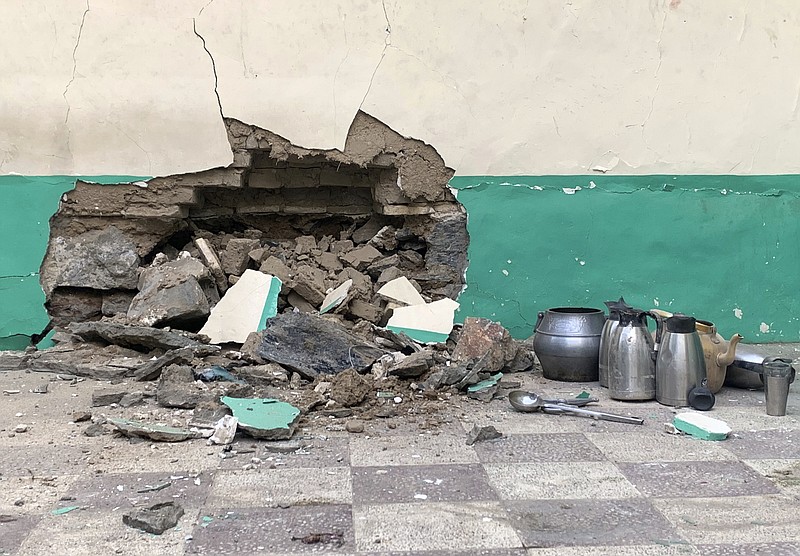KABUL, Afghanistan -- The Islamic State group claimed responsibility for a deadly suicide bombing on a Shiite mosque in southern Afghanistan that killed 47 people and wounded scores more. Relatives laid the bodies of the victims to rest Saturday and called on the Taliban to protect them.
In a statement posted late Friday on social media, the group reported that two of the group's members shot and killed security guards manning the entrance of the Fatimiya mosque in Kandahar province.
One detonated his explosives at the entrance of the mosque and the other inside.
ISIS' news agency Amaq in a statement gave the names of the attackers as Anas al-Khurasani and Abu Ali al-Baluchi, both Afghan nationals.
The families of the victims Saturday dug their graves and carried the bodies to their final resting place. In total, 63 graves were dug, but the Taliban's chief for the provincial department of culture and information maintained that the official death toll was 47.
Shiite leader Sayed Mohammed Agha called on the Taliban government to take serious measures to protect the Shiite minority, "because our enemies will harm our society by any means they can."
The attack came a week after a bombing claimed by the local Islamic State affiliate killed 46 people at a Shiite mosque in northern Afghanistan, raising fears that ISIS -- an enemy of both the Taliban and the West -- is expanding its foothold in Afghanistan.
Friday's attack was the deadliest to strike Afghanistan since the U.S. exit from the country, which allowed the Taliban to seize control of the Afghan capital. It was also the first major attack by the group in the country's south.
ISIS carries out frequent attacks in its eastern stronghold, but recently has shown signs of expansion, with attacks in the north and Kabul.
The attacks have brought into question the Taliban's ability to counter the growing ISIS threat.
The Taliban have pledged to restore peace and security after decades of war and have also given the U.S. assurances that they will not allow the country to be used as a base for launching extremist attacks on other countries.
During the Taliban's previous rule of Afghanistan from 1996-2001, they denied girls and women the right to education and barred them from working and public life. Since their Aug. 15 takeover of Afghanistan as U.S. and NATO forces were in the final stages of their chaotic withdrawal from the country after 20 years, the Taliban have come under increasing international pressure to ensure women's rights to education and work.
United Nations Children's Fund Deputy Executive Director Omar Abdi, who visited Kabul last week, told reporters at U.N. headquarters that five of Afghanistan's 34 provinces -- Balkh, Jawzjan and Samangan in the northwest, Kunduz in the northeast and Urozgan in the southwest -- are already allowing girls to attend secondary school.
He said the Taliban's education minister told him they are working on "a framework" to allow all girls to continue their schooling beyond the sixth grade, which should be published "between a month and two."
"As I speak to you today, millions of girls of secondary school age are missing out on education for the 27th consecutive day," Abdi said. "We are urging them not to wait. Any day that we wait -- it's a day lost for those girls that are out of school."
But Abdi said despite this progress, 4.2 million Afghan children are out of school, including 2.6 million girls.
U.N. Secretary-General Antonio Guterres urged the world to prevent the Afghan economy from collapsing and help the Afghan people, an appeal echoed by Abdi who said "the situation is critical, and it will only get worse."
Information for this article was contributed by Edith M. Lederer of The Associated Press.

